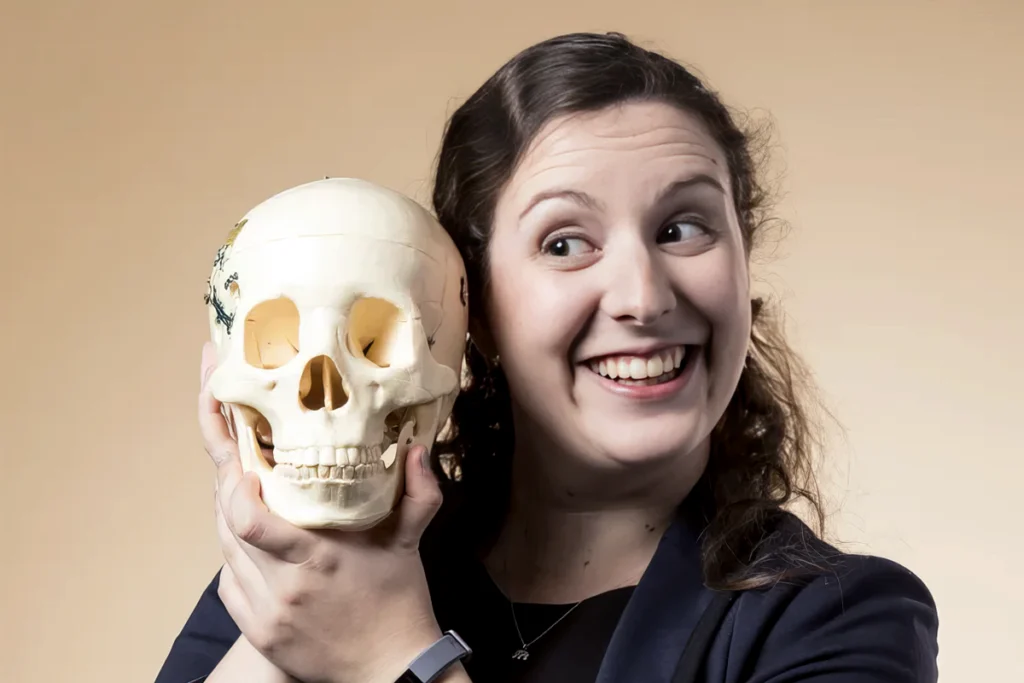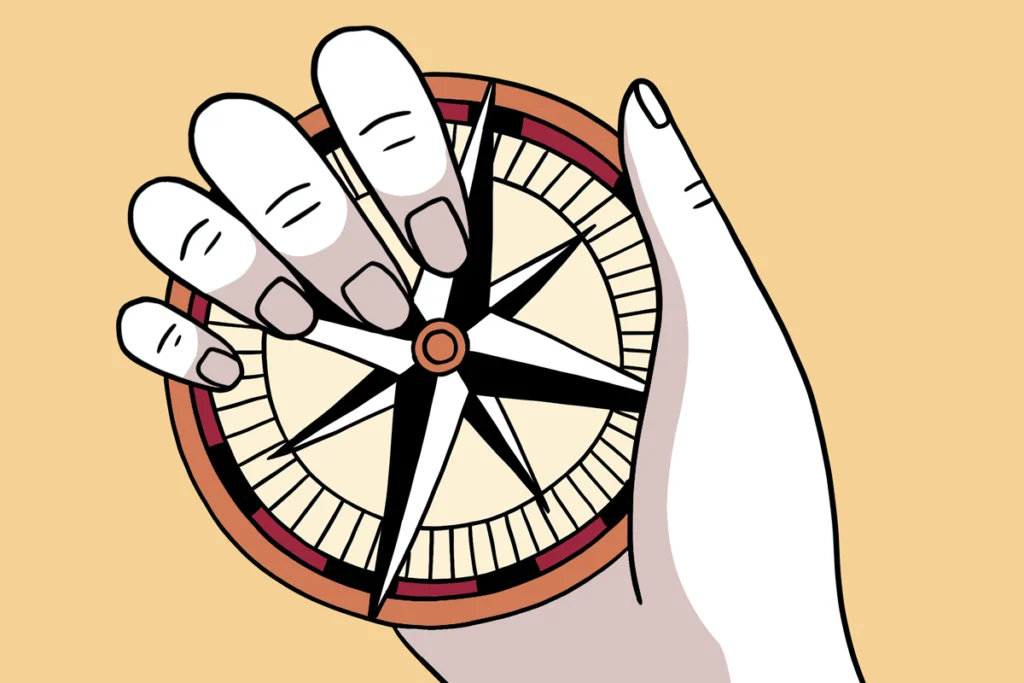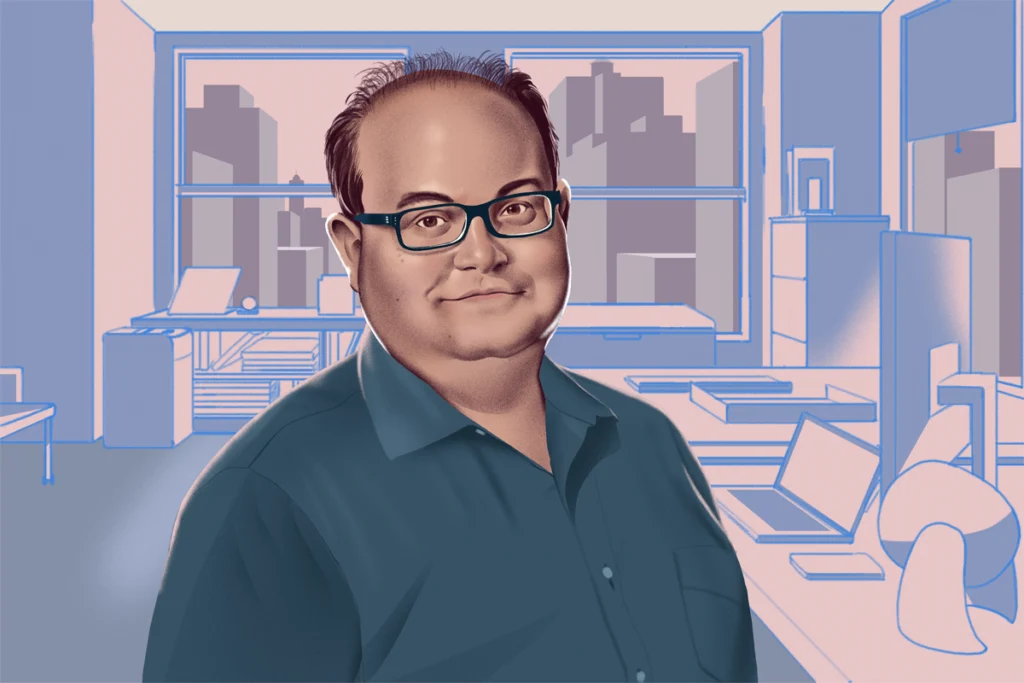
The Transmitter Launch: Q&A with Amalia Napoli
This musician-turned-researcher “had already lived a life” before starting her Ph.D. in neuroscience at the age of 53. She spoke with The Transmitter about her path and how she used her time outside of academia to her advantage.
A second act, set in a lab
Amalia Napoli was not supposed to become a neuroscientist, she says.
Born in Staten Island, New York, to Italian immigrants — a soprano and an oboist from a long line of instrument makers — she was raised to be a musician. She started piano lessons at age 3 and began teaching music in her teen years. And yet, she had an immediate fascination with science that did not fade, she says, even as she opened and ran a successful music school.
In her early 20s, Napoli decided she would scratch that science itch by going to medical school. She took the prerequisite classes, aced the entrance exam and got into four programs. When her father said he would not support her schooling, however, she reluctantly let that dream go. She got married, sold the music school and relocated to Long Island, where she raised three children.
But Napoli never stopped reading about scientific research. And at the age of 51, spurred by her interest in understanding medical conditions that she and her daughter had developed (diabetes and a tick-borne chronic illness, respectively), she enrolled in a master’s program to study physiology and biophysics at Stony Brook University in New York. This past May, she received her Ph.D. in neuroscience for her work on how mutations in the subunits of a glutamate receptor, N-methyl-D-aspartate (NMDA), affect neurogenesis in zebrafish.
“It isn’t too late just because you didn’t do it in your 20s,” she says. “It’s never too late.”
Napoli, who is now a postdoctoral researcher at Stony Brook, spoke with The Transmitter about her unconventional path to neuroscience research and how she used her years outside of academia to her advantage.
This interview has been lightly edited for length and clarity.
The Transmitter: What were some of the biggest challenges in going back to school later in life?
Amalia Napoli: The hardest thing was adjusting to being a student and a trainee. I started my master’s when I was in my early 50s; I had already lived a life. I had had my own business for years — a group of 40 employees, contracts in three different states, all of that. I was used to running the show and being in charge. And it was really, really difficult to adjust my mindset to being a trainee in a lab. A lot of the decisions are just not mine to make.
Logistically, it was very difficult — both physically and emotionally — to go from being so present for my kids for many years, and then being immersed in these rigorous master’s and Ph.D. programs with heavy coursework, and then doing research on top of that. Even before I applied for the program, studying for the GRE — that was my first experience of what was to come. But my kids have all been so supportive and so helpful in each of their own ways.
TT: How has your experience shaped you as a scientist?
AP: I’ve had the luxury, for all those years, of being able to read and immerse myself in new research, new discoveries, things in different fields. Because I didn’t have to stay single-minded to keep a lab afloat or keep a career moving forward.
And it’s part of the reason that, despite my age, I’ve had success. I am able to look at questions holistically and bring in information from many different subspecialties within neuroscience, specialties outside of neuroscience. That’s helped to shape my hypotheses, as well as the actual methodologies of the research that I do. I think that that’s a gift that all these years of being a frustrated scientist gave me.
TT: Have you faced any ageism in the research community?
AP: I was concerned about how I would integrate with my cohort of students — how I would be looked at. Most of them are as old as my kids, if not younger. But it’s never really been a problem. I’ve made wonderful friends in my cohort and in the extended body of students.
TT: What advice do you have for prospective graduate students who have an atypical background?
AP: When I was contemplating applying — first to the master’s program, and then the Ph.D. program — both times I made appointments with the people who were in charge of those programs, and kind of sat down and laid it all out. I said, “Here’s my situation. Is this even within the realm of possibility? And what should I be doing to increase my chances?”
I’ll never forget, when I applied to the master’s program, they want three letters of recommendation, which normally come from your professors. And all of the professors I had in college were dead! So I had to provide some very unconventional letters. I ended up using letters from people in the medical profession — including my own physician — who knew me well and with whom I regularly discussed my interest in scientific research.
That might be something that, if you didn’t reach out and talk to people, it might stop you dead in your tracks. You read the requirements for admission, and it says, “three letters of recommendation from professors or research mentors,” and you think, “I have no real way of doing that.”
So don’t be afraid to feel foolish or be shot down or turned down. Ask the questions. Arm yourself with the knowledge, and position yourself as best as you can so that you can initially have small successes that will make you more confident.
TT: What is your dream for your career now?
AP: I would like to be in a position where I can teach and where I can have my own lab and answer my own questions.
Book of the month:
Napoli recommends “Acquiring Genomes: A Theory of the Origin of Species” by Lynn Margulis and her son, Dorion Sagan. Margulis, who was married to Carl Sagan before they divorced in 1964, developed the theory of symbiogenesis — the idea that early prokaryotic cells took up bacteria, enabling them to evolve into eukaryotic cells. Despite Margulis’ revolutionary work, Napoli says, “as a woman scientist, [she] lived in the shadow of her more famous husband.”
Jobs, trainings and funds:
There are lots of job postings this time of year! Here are a few:
- The University of Cambridge in the United Kingdom is hiring a professor of integrative and systems neuroscience.
- The Rochester Institute of Technology in New York has open tenure-track positions in imaging science and in cognitive science/neuroscience.
- The Juarez Lab at the University of Maryland, Baltimore is looking to hire a postdoctoral researcher to study “how cellular excitability regulates emotional states and decision-making behaviors for natural and drug reward in mice.”
- Multiple labs at the Max Planck Florida Institute for Neuroscience in Jupiter are hiring postdoctoral fellows and research technicians, and one is seeking a research scientist to study the molecular mechanism underlying synaptic plasticity and memory formation.
Recommended reads:
- Graduate student and postdoctoral researchers across the United States are seeing significant salary increases, thanks to recent union-organizing efforts, and it is unclear how those changes will affect the budgets of individual labs, according to an article in Science. The change is necessary, said Eric Nestler, professor of neuroscience at the Icahn School of Medicine at Mount Sinai in New York City, but as a result, “less research is going to be produced per dollar of [grant] money.”
- Improving one’s writing requires “deliberate efforts to improve,” wrote Arjun Raj, professor of bioengineering and genetics at the University of Pennsylvania in Philadelphia, in a recent post on X (formerly Twitter). He offers some tips for those efforts — and for navigating many other aspects of academic research, from reviewing papers to making figures — in a freely available Google doc.
- “Postdoctoral mentorship needs a reform” is the straightforward title of an article in Trends in Molecular Medicine by Marcus Lambert, associate professor of epidemiology and biostatistics at SUNY Downstate Health Sciences University in New York City, and Navika Gangrade, a postdoctoral researcher at the university. Their suggested steps toward reform include offering “mini rotations” to enable postdocs to find a lab that is a good fit and setting up postdoctoral committees to provide a formalized mentorship network.
Recommended reading

The Transmitter Launch: Q&A with Kaitlyn Casimo

The Transmitter Launch: Industry internships, ‘Next Generation Leaders,’ and more

The Transmitter Launch: Networking in neuroscience—five ways to find people
Explore more from The Transmitter

How to be a multidisciplinary neuroscientist

